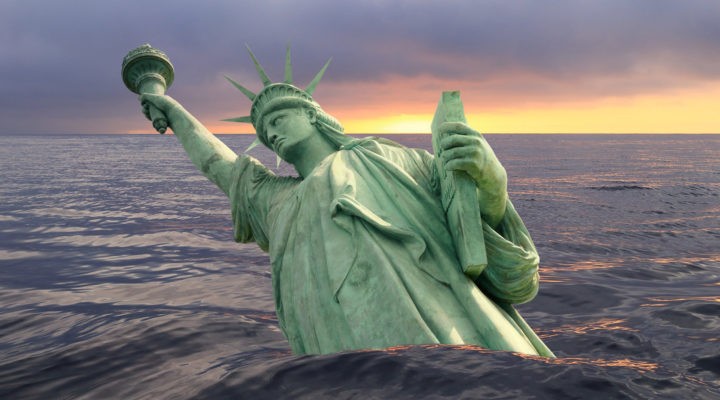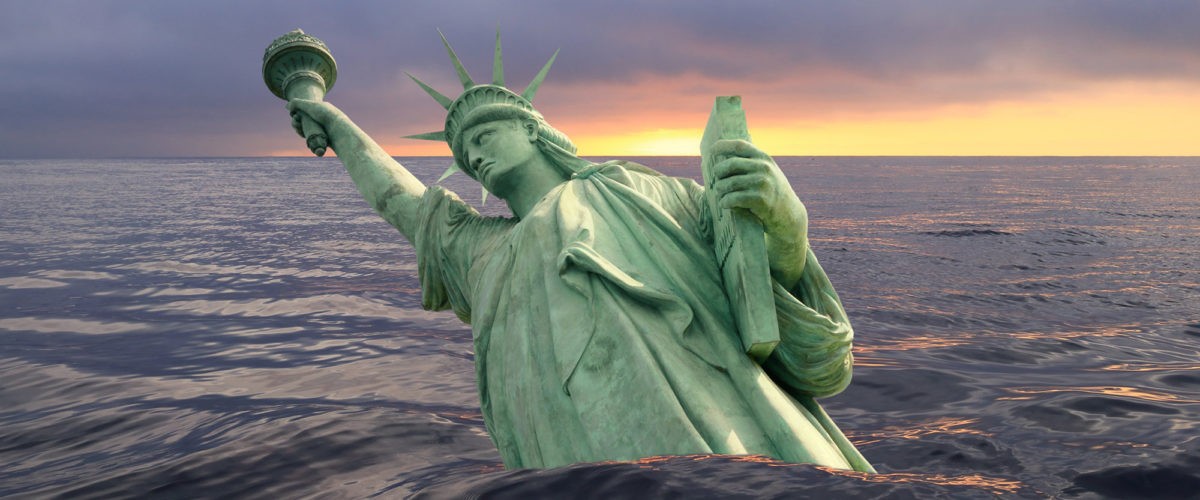Since the moment the 12-story Champlain Towers condominiums partially collapsed June 24 in Surfside, Fla., the tragedy has topped the news — hourly, daily, exhaustively.
News outlets nationwide have breathlessly reported every updated body count, every revised tally of the missing, every shred of information and speculation about the cause of the collapse. No pile of rubble has received so much attention since the Twin Towers fell 20 years ago. Why?

Erich Bridges
What makes news provides part of the answer: It’s not necessarily objective significance or long-term consequence, but what captures attention and eyeballs. And if it bleeds, it leads, as the cynical journalistic saying goes.
The original print tabloids launched the trend in earnest in the 1800s. Sound and moving pictures greatly expanded the market in the following century. We’ve been a nation of multimedia rubberneckers at least since the Hindenburg zeppelin disaster was caught on film in 1937 (“Oh, the humanity!”) Newspapers, radio, TV and the internet have served up a diet of sensational murders, mayhem, blood, gory accidents, crime, mysteries and scandals ever since.
You’ve consumed plenty of it. Don’t pretend you haven’t. It’s almost impossible to turn away.
The Surfside condo collapse, awful as it truly is, supplies some of the key ingredients: sudden and terrible death, the desperate search for survivors by heroic rescue workers, the heartbreaking stories of loss and grief, the questions about what caused the disaster. Who’s to blame? What if it happened to me or my family? We watch transfixed.
“Tragedy porn,” one observer called it. I call it “Random Horrible Event Syndrome.”
True, there are a few theoretically possible elements of larger significance to the beach condo collapse. Climate change increasingly threatens all coastal areas of the United States; maybe it has something to do with this event. Crumbling infrastructure across the land is becoming a more urgent issue by the day. But does the fall of one aging residential building justify the weeks of national attention we have lavished upon it?
Here’s a partial list of more significant stories that have taken a temporary back seat since the Surfside tragedy:
- The global COVID death toll passed 4 million worldwide, and the highly contagious Delta variant threatened national reopenings in the United States and many other countries.
- A heat wave killed hundreds in places such as the Pacific Northwest that haven’t seen such temperatures since meteorologists began recording them. It’s yet another sign of accelerating climate change.
- The United States all but completed its hasty exit from Afghanistan after 20 years of involvement there, leaving behind a weak, corrupt Afghan government and an ill-prepared national military. What comes next? Chaos, civil war and a possible return to power by the terror-sponsoring Taliban. Lessons learned from Vietnam: none.
- The Chinese Communist Party, which is directly or indirectly responsible for tens of millions of deaths by execution, persecution and starvation since its founding, marked its 100th birthday July 1. The Chinese regime celebrated by crushing Hong Kong’s remaining press freedoms, continuing ethnic genocide against the Uyghur people and increasing its regular threats to invade Taiwan.
- The first U.S. Independence Day since the Jan. 6 mob attack on the Capitol came and went, with leaders of one of the two major national political parties continuing to downplay the insurrection, or denying it even took place.
- More than 100 Americans were shot, 18 of them fatally, over the July 4 weekend in Chicago as violent crime increases nationally. My own medium-sized city of Richmond, Va., saw 10 people shot dead over the same period. Scores of American cities have reported double-digit increases in homicides this year.
I could go on. We shouldn’t be too hard on ourselves for taking a break from such major stories to obsess about a single building falling down in Florida. The mind can take in only so much bad news on a national or global scale. It’s easier to focus on an isolated event and its personal aftermath.
“The ever-popular American idea that we can somehow go it alone and survive as a free country is even more delusional now than it was before World War II.”
“A single death is a tragedy; a million deaths is a statistic,” Stalin supposedly said. He certainly used the human tendency to ignore the bigger picture to his murderous advantage.
If the COVID pandemic has reminded humans of anything, however, it is that all 7.8 billion of us are closely tied to each other — physically, socially, economically. We can resist it all we want, but globalization is here to stay, for good and ill. It spreads prosperity as well as disease. America’s economy would collapse overnight without global trade. The ever-popular American idea that we can somehow go it alone and survive as a free country is even more delusional now than it was before World War II.
The sooner we pay full attention to the big picture — the global picture — the better our chances to cope with it. My friend and mentor Keith Parks, retired president of the International Mission Board, used to call it “keeping the world in view.” And like no other generation in human history, we have the tools to do so.
That is a gift from God, as much as we would like to look away from stark reality at times. As people of God, if we can glimpse the totality of human suffering, need and potential, we can do something about it. What an opportunity!
Erich Bridges, a Baptist journalist for more than 40 years, retired in 2016 as global correspondent for the Southern Baptist Convention’s International Mission Board. He lives in Richmond, Va.


